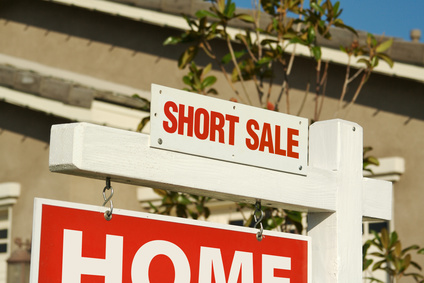When they purchased their homes, sellers may or may not had been required to make down payments to qualify for their mortgages. They may even have built up some equity from paying down their mortgages. However, some may not have owned their homes long enough to break even or sell at a profit. Further, the local market may have changed; falling home values may have stripped any equity the seller earned to the point that they owe more on their homes than they’re worth. For instance in Central Florida, many homes lost as much as 50% of their value from just before the great market crash.
Short Sale
A short sale is a transaction approved by a lender to release the seller’s mortgage for less than what the seller owes. A short sale can mean that a home is marketed substantially below the seller’s previous purchase price, which can result in a substantial bargain for the next homebuyer. ..See More - What is a Short Sale Anyway?
It’s the lender who is taking the loss though. For that reason, short sales can take months longer than a typical home purchase, and some may never happen. In the Central Florida area, an average time can be between 3-6 months. I've personally seen some happen in less than a month or taking over a year to complete. That can be a problem for a homebuyer who has locked in a low interest rate, or who is interested in moving into their new home within the next two months.
First, the seller must prove financial distress to the lender, including W-2s, bank statements, payroll stubs, termination letters, financial statements, a letter explaining the hardship, and more. Then the lender must substantiate the current market value of the home to verify what the seller says – that they can’t sell the home for enough money to clear their debt and transaction fees. Lenders also have to protect themselves from fraud – straw buyers can turn around and sell the home back to the homeowner cheaply, for a favor or a fee.
Talk to your real estate professional
Before you make an offer on a home that is advertised as a short sale, talk to your real estate professional:
- Verify that the seller has provided required short sale documentation to the lender.
- Verify that the seller’s lender has agreed to a short sale, and that it is not simply wishful thinking on the part of the seller.
- Find out the amount remaining on the seller’s note.
- Verify market value as well as pending market value, especially if it is lower.
- Choose an offer price that is high enough to cover the note, or at least close, but is still below market value.
- Make your offer contingent upon the lender’s written acceptance of the short sale terms.
Keep in mind that a short sale has risks and rewards. Yes, you may get a home for less, but there's more risks and you might have to work harder to close.
 Dan Lopez | Legends Realty | 290 Waymont Ct., ste 100 Lake Mary, FL 32746 | danlopez@legendsre.com | Mobile: 407-705-3915 | www.HomesInCentralFL.com
Dan Lopez | Legends Realty | 290 Waymont Ct., ste 100 Lake Mary, FL 32746 | danlopez@legendsre.com | Mobile: 407-705-3915 | www.HomesInCentralFL.com












